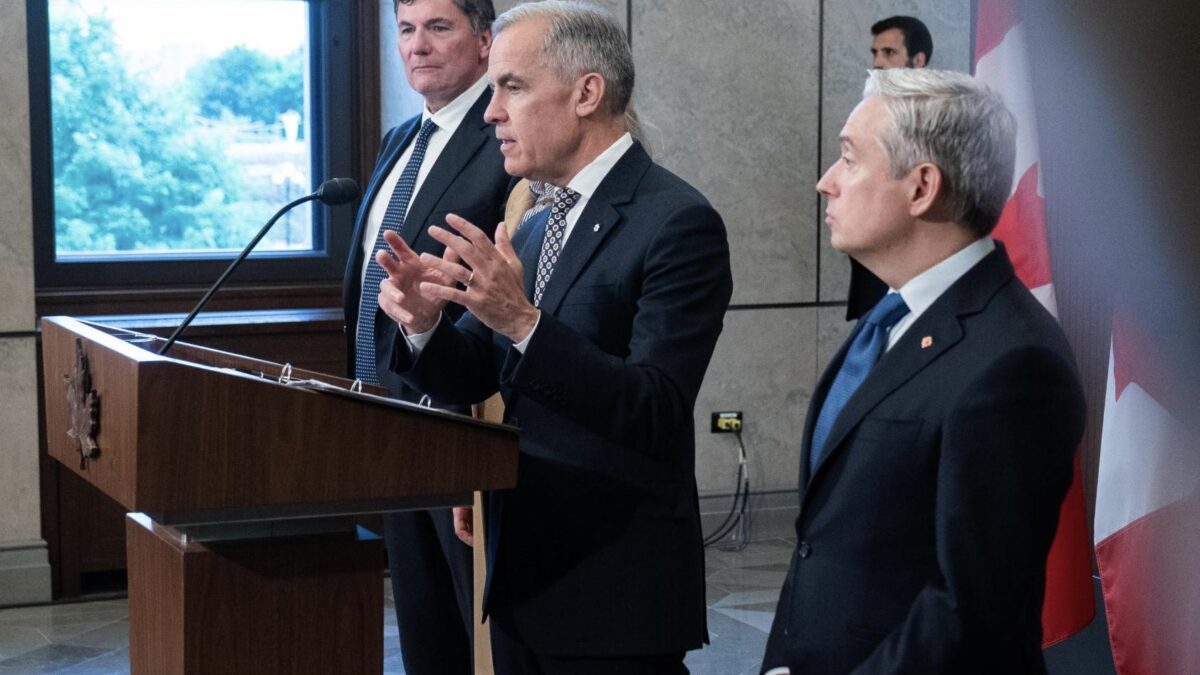Canada’s government is committed to establishing the strongest economy within the G7, with a focus on protecting its workers and industries in the face of external pressures. As discussions for a new economic and security partnership with the United States unfold, Canada is taking decisive steps to shield its steel and aluminum sectors from unjust American tariffs. The Honourable François-Philippe Champagne, Minister of Finance and National Revenue, announced a series of protective measures aimed at supporting Canadian workers and industry.
“We will take the time we need to negotiate the best deal for Canada, but no longer. In parallel, we are ensuring that workers and industries are protected from the unjust U.S. tariffs. These are the workers and industries who will build one, strong Canadian economy – the strongest economy in the G7,” stated the Rt. Honourable Mark Carney, Prime Minister of Canada.
“Canadian workers and industries can count on us. While we continue to aim for an agreement with the United States, we are taking strong, targeted action to respond to the unjust American tariffs and to protect the integrity of our steel and aluminum sectors,” said the Honourable François-Philippe Champagne, Minister of Finance and National Revenue.
The government’s approach involves several key strategies designed to reinforce its response to U.S. tariffs:
Revised Counter-Tariffs to Align with Trade Progress
Starting July 21, Canada will update its existing counter-tariffs on steel and aluminum products, adjusting them in line with the advancements made in broader trade discussions with the United States. This shift will ensure that the tariffs remain consistent with ongoing progress in the evolving trade landscape.
Implementation of Reciprocal Procurement Policies
In a move to prioritize Canadian businesses, the government will introduce reciprocal procurement policies effective June 30. This policy will limit access to federal procurements to suppliers from Canada and other reliable trading partners that offer Canadian suppliers the same level of access through trade agreements. In addition, the government is exploring ways to increase the use of Canadian-made steel and aluminum in public infrastructure projects, in collaboration with provincial and territorial governments.
New Tariff Rate Quotas to Protect Canada’s Steel Industry
To stabilize the Canadian steel market and prevent disruption caused by U.S. actions, Canada will implement new tariff rate quotas on steel products imported from non-free trade agreement partners. These quotas will be set at 100% of 2024 levels and applied retroactively. The government has committed to reviewing these measures within 30 days to assess their effectiveness.
Additional Tariff Measures to Address Global Overcapacity
Over the coming weeks, Canada will introduce further tariff measures targeting global overcapacity and unfair trade practices in the steel and aluminum sectors. These measures will be based on the “country of melt and pour” for steel and the “country of smelt and cast” for aluminum, addressing the challenges exacerbated by U.S. trade actions.
Formation of Task Forces to Monitor Industry Trends
The Canadian government will establish two new task forces, one for steel and one for aluminum, composed of government representatives and industry stakeholders. These committees will meet regularly to monitor market trends and trade dynamics, ensuring that the government’s decisions are well-informed and responsive to the evolving needs of Canadian industries.
Continued Support for Large Businesses through the Tariff Loan Facility
The government’s $10 billion Large Enterprise Tariff Loan facility remains available to assist large businesses impacted by the tariffs. This initiative aims to provide liquidity to businesses that were financially stable before the U.S. trade actions, helping them maintain operations and recover as market conditions stabilize.
Ongoing Review and Adjustments
The Canadian government remains vigilant and prepared to take additional steps as necessary. It will continue to review the appropriateness of its measures in response to developments with U.S. tariffs, working closely with provinces and territories to ensure that regional perspectives are incorporated into the broader response.
“Canada’s new government was elected to protect and defend Canadian interests. That is what we are doing today with the implementation of these new measures. As we launch a generational effort to build one Canadian economy, Canadian steel and aluminum workers will be at the heart of it,” expressed the Honourable Dominic LeBlanc, President of the King’s Privy Council for Canada and Minister responsible for Canada-U.S. Trade, Intergovernmental Affairs and One Canadian Economy.
To help businesses adjust to the changing trade environment, the government has established a remission process that allows businesses time to realign their supply chains. Under this process, remission requests are being granted on a case-by-case basis to provide a balanced and targeted approach. Further individual requests will be reviewed and approved in the coming days. Additionally, the government plans to revise its remission framework to encourage the use of Canadian steel and aluminum in domestically produced goods.
“By adjusting our counter-tariffs and protecting our market, we are standing up for our steel and aluminum producers, their jobs, and our economic sovereignty. We will build a stronger Canadian economy — and it will be made with Canadian steel and aluminum,” stated the Honourable Mélanie Joly, Minister of Industry and Minister responsible for Canada Economic Development for Quebec Regions.
As Canada works to redefine its economic and security relationship with the United States, it remains steadfast in defending the interests of its workers, businesses, and industries. The government’s commitment is clear: Canada will continue to strengthen its economy, safeguard its workforce, and ensure that it remains a competitive player on the global stage.

